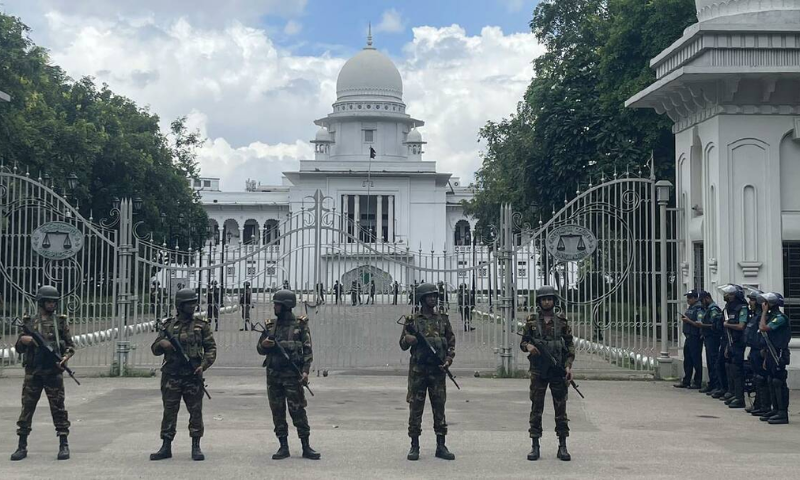A former judge of Bangladesh’s Supreme Court, Shamsuddin Chowdhury Manik, was detained by the Border Guard Bangladesh (BGB) while allegedly attempting to flee the country through the northeastern border in Sylhet, according to a statement from the BGB.
Local media, including the newspaper Prothom Alo, reported that the BGB had informed the press via SMS about Manik’s arrest as he tried to cross into India at the Kanaighat border in Sylhet. He was reportedly held at a BGB outpost until midnight, according to the outpost’s in-charge.
Meanwhile, deposed Prime Minister Sheikh Hasina Wajid fled to India on August 5 following violent protests against her government.
In a related development, UN investigators have arrived in Dhaka to investigate the deaths of hundreds during recent student-led protests that culminated in the resignation of Bangladesh’s longtime Prime Minister. The interim government has committed to fully cooperating with the United Nations High Commissioner for Human Rights (OHCHR) to ensure justice and accountability for the violence that took place during the protests.
Rory Mungoven, the OHCHR’s chief for the Asia Pacific region, is leading the three-member investigative team. Upon their arrival, the team held preliminary discussions with Foreign Secretary Masud Bin Momen. Mungoven described the visit as exploratory, with the aim of engaging with various sectors of Bangladeshi society, including government officials, ministries, civil society, and advisors, to understand priorities and explore areas where the UN can provide assistance, including fact-finding and investigation.
Mungoven highlighted High Commissioner Volker Turk’s admiration for the bravery of Bangladesh’s youth and the historic opportunity for the country to restore democracy and promote human rights.
A preliminary analysis by the OHCHR, released on August 16, revealed “strong indications” that security forces employed “unnecessary and disproportionate force” during the protests. The report includes allegations of extrajudicial killings, arbitrary arrests, enforced disappearances, torture, and severe restrictions on freedoms of expression and assembly.
Between July 16 and August 11, more than 600 deaths were reported, with thousands more injured. The report suggests that these numbers may understate the true extent of the violence. The majority of casualties were attributed to security forces and student affiliates of the then-ruling Awami League party, with fatalities resulting from the use of live ammunition and other force against unarmed or lightly armed protesters, including at least four journalists and 32 children.


